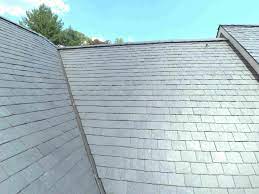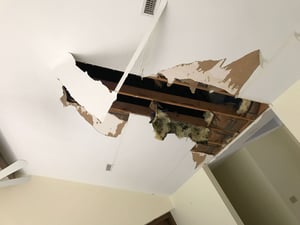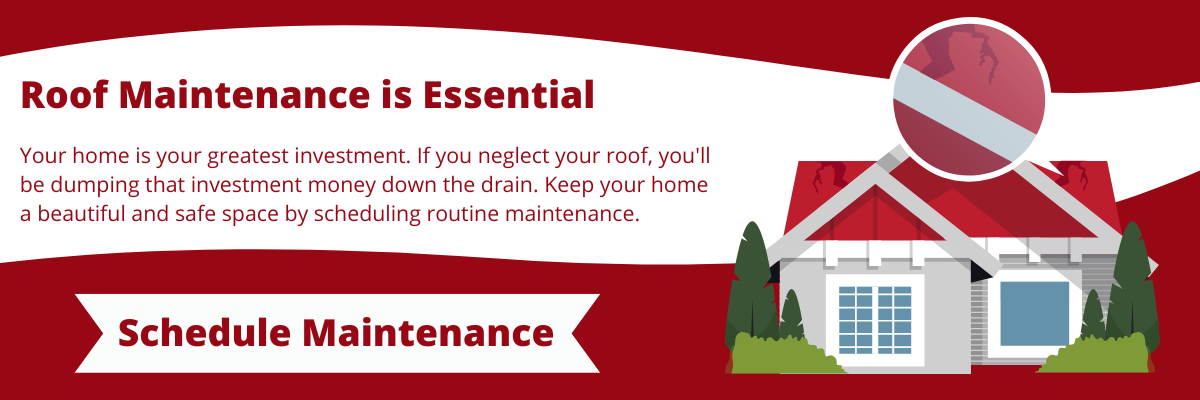
For those residing in the Southeast, storms come as small gifts provided by the region just for us! They're frequent, but luckily, often not too alarming. However, there's nothing that sends a homeowner into a panic more quickly than finding a leak during or after one of these rainstorms. Whether it's a slow drip or a sudden gush into your living space, most want more than just a makeshift solution involving buckets or used Tupperware desperately foraged from the depths of your cabinets.
At RoofCrafters, we've been tackling roof leaks for almost three decades, and we're well aware that by the time a homeowner notices a leak, it might have been seeping into their home for weeks or even months. What's more distressing is when homeowners are aware of a leaky roof but struggle to pinpoint its source, a situation that can lead to more than just surface-level damage to their homes.
These troublesome leaks can result in water damage, mold growth, electrical issues, and even fires. If you're eager to stay ahead of the curve and know precisely what steps to take upon discovering a leak in your slate roof, you're in the right place. This article is here to guide you through all you need to comprehend about roof leaks specifically in slate roofing systems and how to swiftly address this concern. Let's dive right in!
Are Slate Roofs Prone to Leaks?
Slate roofs are generally renowned for their durability and longevity, offering a lifespan of 100 years or more when properly installed and maintained. However, despite their impressive reputation, slate roofs can still be susceptible to leaks under certain conditions (which is why you're here.)
One of the primary causes of leaks in slate roofs is related to the installation process. Slate roofing requires skilled craftsmanship during installation, including proper alignment, fastening, and the use of appropriate flashing materials. If not installed correctly, such as using incorrect nails or improper overlap, it can create vulnerabilities where water can infiltrate, leading to leaks over time.
Aside from that, the natural aging of slate tiles can contribute to leaks. Over many years, the slate tiles may experience weathering, causing them to become brittle, crack, or break. These natural changes in the slate tiles' condition can create openings or gaps, allowing water penetration during heavy rains or storms, resulting in leaks.

Keep in mind that issues with flashing, valleys, or other vulnerable areas of the roof structure can also lead to leaks in slate roofing. If the flashing, which helps to direct water away from critical areas, becomes damaged, rusted, or improperly installed, it can compromise the roof's waterproofing, leading to potential leaks.
Although slate roofs are durable and resistant to many environmental factors, regular inspections and timely maintenance are crucial to identifying and addressing potential issues that could lead to leaks. By ensuring proper installation, conducting routine inspections, and promptly repairing any damaged or deteriorating slate tiles or roofing components, homeowners can mitigate the risk of leaks in their slate roofs and maintain their long-lasting integrity!
Now...How Do I Identify the Leak?
Okay, so routine maintenance and proper installation aside, the damage is done and you have a leak. Here's some crucial info to help you find it.

Take a look around the area where the water is running from. Look for water stains and moldy/musty smells. By using your senses, you're more likely to figure out where the source is.
What if I Can't Find the Leak?
Water flows downward, right? This means that the leak could be coming from a different location than where you're actually seeing the water. If you find yourself unable to locate the source of a leak, it's important to take appropriate action. In situations like these, the first step is to cover the area where the leak was detected with a tarp and get assistance from a professional roofer. Consulting a licensed roofer offers multiple benefits – not only can they skillfully identify the issue, but they also have the expertise to promptly repair the leak, preventing further harm to your home.
What's Causing the Leak?
There are several potential causes for leaks, especially in older homes. When a leak first raises its soggy head, the initial focus is usually on stopping the immediate trouble. Yet, that might not be the smartest move. Depending on how long that leak lurked undetected, standing water might have brewed trouble for your home, creating unseen mischief that could later spook any homeowner. We're talking about some seriously creepy activity that'll haunt you for years to come.
Can I Prevent Future Slate Roof Leaks?
Prevention is always key, and that holds true especially in roofing. Instead of waiting for a leak to occur, by performing a little annual maintenance on your roof you can stop leaks from starting. Make sure you clear out your gutters and blow leaf litter off your roof! Don't forget to climb a ladder every now and then to give your roof the once over, too. If you don’t want to do it yourself, you can call a local roofer to inspect your roof for free. If you think that's the best course of action, don't forget about RoofCrafters! Drop us a line and one of our lovely representatives will get back to you swiftly.
My name is Kevin Mills, and I am the lead estimator for RoofCrafters’ Tampa division. I’m originally from Michigan, and I enjoy hunting, fishing, and spending any free time outdoors. What I’m most passionate about, though, is helping business owners and homeowners alike achieve their roofing goals, all while providing a seamless customer journey.




